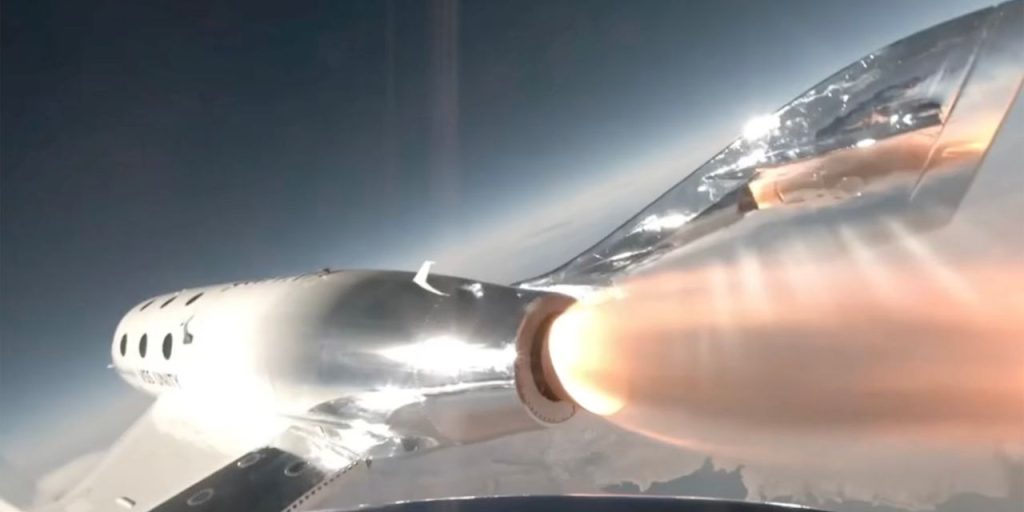Virgin Galactic Holdings Inc. fleshed out its near-term growth strategy when it reported third-quarter results Wednesday, laying out the roadmap for its new Delta Class spacecraft.
The Delta spacecraft will begin flight tests in 2025 and enter service in 2026. Unlike the company’s current Unity spacecraft, which has four seats for paying passengers, the Delta spacecraft will have six seats, and will be capable of making up to eight spaceflights a month, significantly more than Unity’s one spaceflight a month.
This will increase Virgin Galactic’s
SPCE,
monthly revenue per spacecraft from the current maximum of $2.4 million to $28.8 million, the company said.
In a note released Wednesday, Truist Securities analyst Michael Ciarmoli said that for Virgin Galactic “faster revenue generation is coming … just not anytime soon.”
Related: Virgin Galactic’s stock soars, company rakes in nearly $2 million in revenue from space tourism
During the conference call to discuss its results, Virgin Galactic explained that it will undertake two more missions using its Unity spacecraft before pausing flights in mid-2024 to focus on developing the Delta spacecraft.
Truist Securities maintained its sell rating and $1 price target for Virgin Galactic. “We still forecast significant cash burn in the coming periods along with elevated execution risk and potential future choke points around Mothership limitations,” Ciarmoli wrote.
Virgin Galactic, which is exiting the third quarter with cash and marketable securities of $1.1 billion, says it has sufficient capital to bring its first two Delta ships into service and achieve positive cash flow in 2026.
Related: Virgin Galactic to cut staff to focus on lower-cost Delta spacecraft
“We remain encouraged by SPCE’s progress toward positive FCF in FY26 and scalable profits with potential to yield $518-691mm in yearly revenue based on two Delta Class spaceships flying 6 passengers 8x per month each,” T.D. Cowen analyst Oliver Chen said in a note released Thursday. Revenue per flight will depend on the proportion of seats sold to private astronauts at $450,000 each compared with seats sold to research projects at $600,000 each, the analyst said.
“Encouragingly, management does believe 3Q’s $1.1bn liquidity will be enough to reach FY26’s weekly flying cadence,” Chen added. T.D. Cowen maintained its outperform rating for Virgin Galactic but lowered its price target to $2.50 from $7.
Of 12 analysts surveyed by FactSet, two have a buy rating, five have a hold rating, and five have an underweight or sell rating for Virgin Galactic.
Virgin Galactic’s stock soared 18.3% Thursday. The company’s shares have fallen 46.9% in 2023, compared with the S&P 500 index’s
SPX
gain of 13.3%.
Related: Virgin Galactic’s stock rockets as ‘Galactic 05’ mission reaches space
Read the full article here
